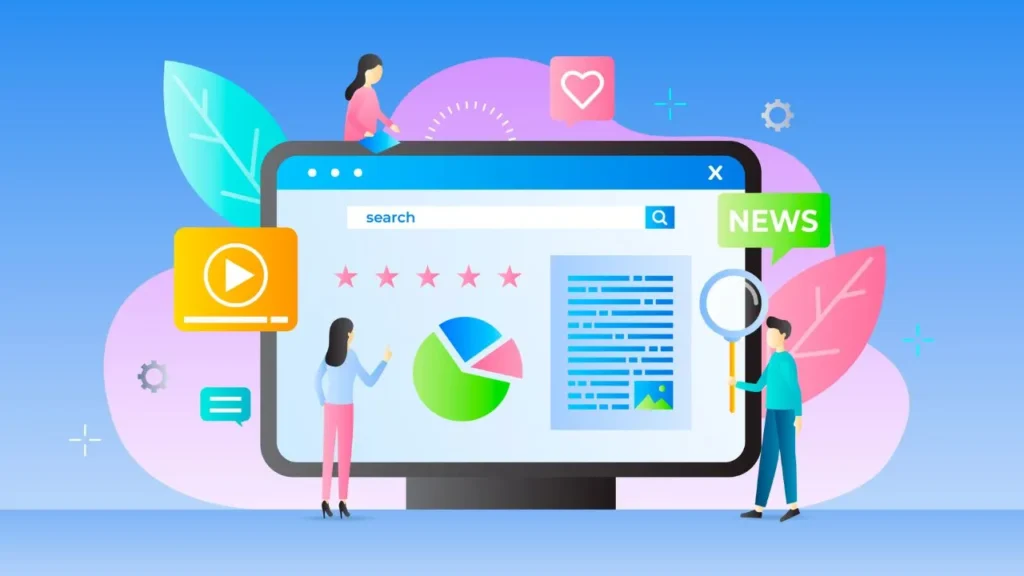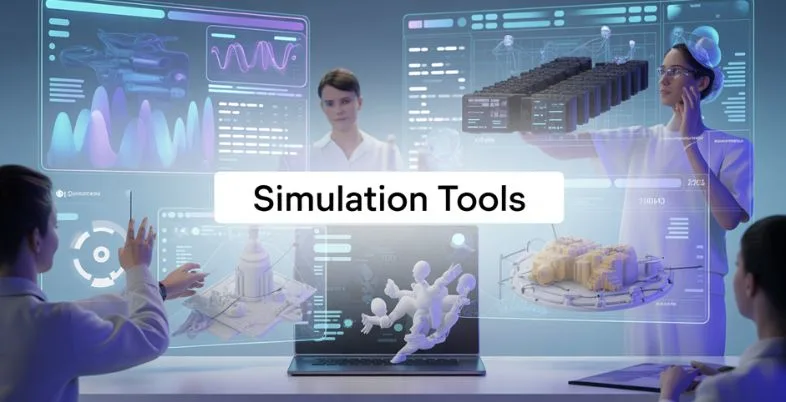Medical practitioners are under increasing pressure to streamline billing operations without compromising quality and the law. Billing software has become a necessity for practices of all sizes, changing the way healthcare organizations operate on their revenue cycles. The appropriate billing software enables healthcare providers to minimize errors and accelerate the process of claims, in addition to maximizing the bottom line.
The healthcare sector is one that keeps changing at a rapid pace, and selecting the most appropriate billing software may be the key to survival or failure in the current competitive market. This ultimate review of the best medical billing software in 2025 will assist you in making a well-informed decision for your practice.
What is Medical Billing Software?
Medical billing software is a specialised healthcare technology package that is meant to automate and simplify the billing procedure of healthcare providers. This software oversees the whole revenue cycle, including patient registration and insurance validation up to submission and payment of claims. The healthcare system today is enabled by modern medical billing solutions that work together with electronic health records (EHR) systems, practice management, and clearing houses to build a smooth workflow that helps lessen the administrative load and improve finances.
These billing software tools address such complicated activities as the coding of medical procedures, insurance claims, payment status monitoring, and denied claims. Through automated medical billing solutions, practices are able to reduce human errors and increase reimbursements, or keep in tandem with medical regulatory standards such as HIPAA.
Why Choose Medical Billing Software?
- Automated Claim Processing: Billing software facilitates the generation, filing, and monitoring of insurance claims and saves a lot of time in manual work and processing.
- Error Reduction and Compliance: Computerized claim scrubbing facilities recognize and rectify errors before submission so that it is in compliance with HIPAA and minimize claim rejection.
- Faster Revenue Collection: Efficient billing and automatic follow-up functions also heighten the speed of receipt of payments and enhance the cash flow
- Comprehensive Reporting and Analytics: Real-time reporting also offers the perspectives of the practice performance that assist in identifying the bottlenecks and streamlining the revenue cycle management
- Integration Capabilities: Up-to-date medical billing systems are compatible with EHR systems, practice management software, and other health technologies to facilitate single workflows.
List of the Top 10 Medical Billing Software
1. EZClaim
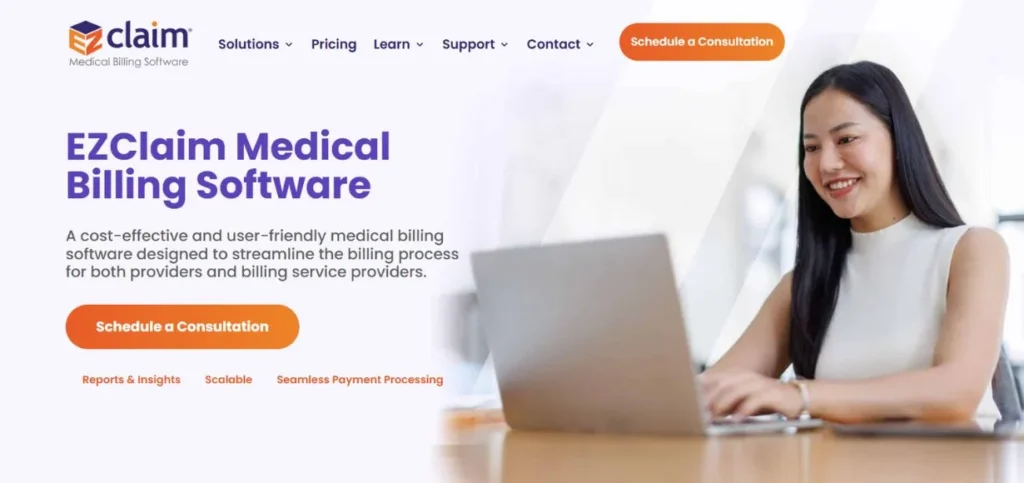
EZClaim is the most suitable medical billing software that is exclusive to small to mid-sized medical practices. It is a complete platform with both cloud-based as well as desktop deployment models that will enable practices to decide on the method of implementation they want to adopt. EZClaim aims at streamlining the compound medical billing environment with well-built functionality and security levels. Independent providers are also particularly attracted to the software as it offers a reliable, affordable medical billing solution without the need to have a wide IT infrastructure.
Key Features:
- Flexible deployment options
- Insurance eligibility verification
- Advanced claim scrubbing
Pros:
- Affordable pricing structure
- Short learning curve
- Strong integration options
Cons:
- Outdated interface design
- Limited enterprise features
- There are limitations in scalability.
Pricing: Plan starts at $169 / month
Website: https://EZClaim.com
2. AllegianceMD
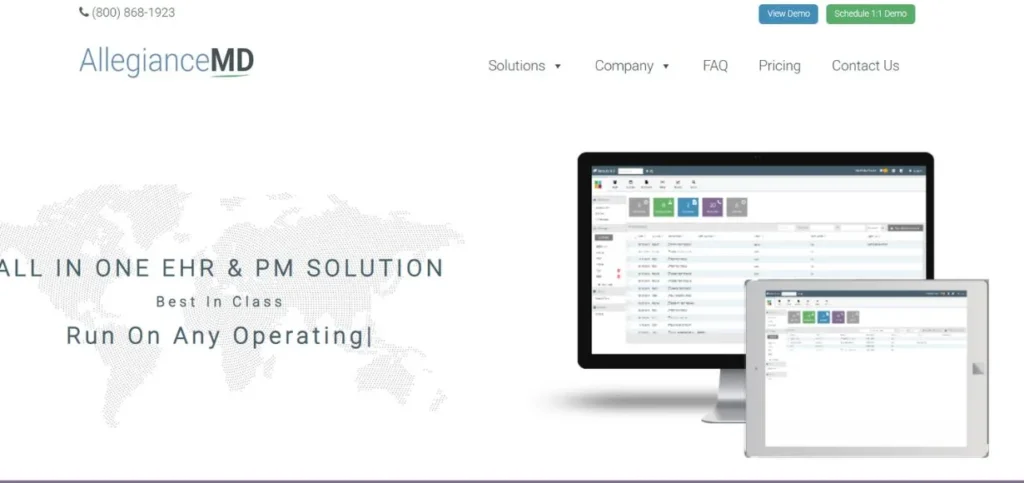
AllegianceMD is a unified billing software solution that is an all-in-one system that incorporates billing, EHR, and practice management functions. This is a cloud-based solution where the automation needs are high and the healthcare facility is either small or medium. The first factor that sets AllegianceMD apart from the billing software market is that it focuses on artificial intelligence and machine learning technologies that are automated to perform the routine administrative tasks.
Key Features:
- Inbuilt EHR capability.
- Robotic billing.
- Built-in patient portal
Pros:
- Strong automation features
- Intuitive user interface
- Regular software updates
Cons:
- Higher cost investment
- Occasional data delays
Pricing: Request Pricing
Website: https://AllegianceMD.com
3. AdvancedMD
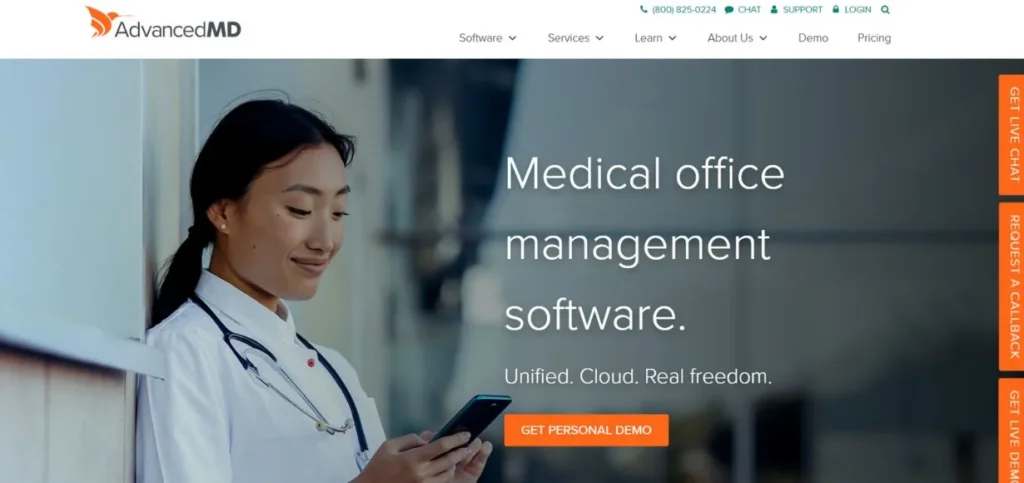
AdvancedMD provides a robust, enterprise-grade medical billing software solution, which integrates billing, EHR, and practice management features into one cloud-based solution. This is a powerful healthcare billing system that is tailored to the needs of mid to large-sized healthcare practices that require sophisticated functionality and deep customization features. AdvancedMD is the best in assisting practices to automate, organize, and streamline their entire workflow in all clinical, financial, and administrative operations.
Key Features:
- Complete revenue cycle management
- Customizable workflows available
- Business intelligence analytics
Pros:
- Highly customizable platform
- Strong reporting capabilities
- Excellent scalability options
Cons:
- Steep learning curve
- Long setup time
- Complex configuration process
Pricing: Contact for Pricing
Website: https://AdvancedMD.com
Suggested Raed: Top AI Letter Writing Tools
4. CureMD
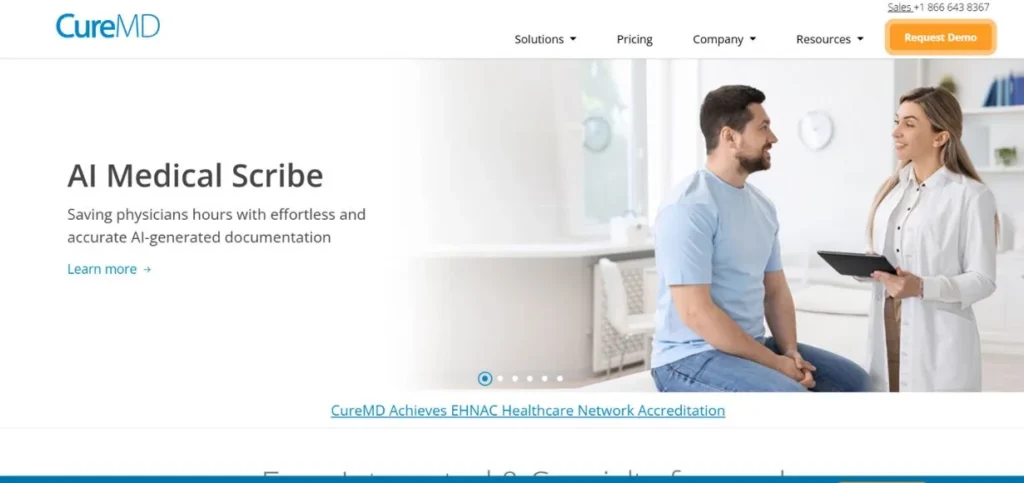
CureMD offers a fully featured billing software platform with billing, EHR, and practice management solutions to healthcare practices of any size. This flexible platform has been known to have specialty-specific templates and a wide range of customization options, allowing practices to customize workflows exactly to their own operational needs. The philosophy of CureMD in medical billing solutions is based on flexibility without excessive complexity, thus it is afforded by practices of any size, starting with the solo provider and also the large multi-specialty practices.
Key Features:
- Specialty-specific templates
- Real-time insurance verification
- Built-in EHR capability.
Pros:
- Highly customizable options
- User-friendly after setup
- Complete integrated suite
Cons:
- Long initial setup
- Slow customer support
- A complex configuration is needed.
Pricing: Contact for a custom quote
Website: https://www.curemd.com/
5. Athenahealth
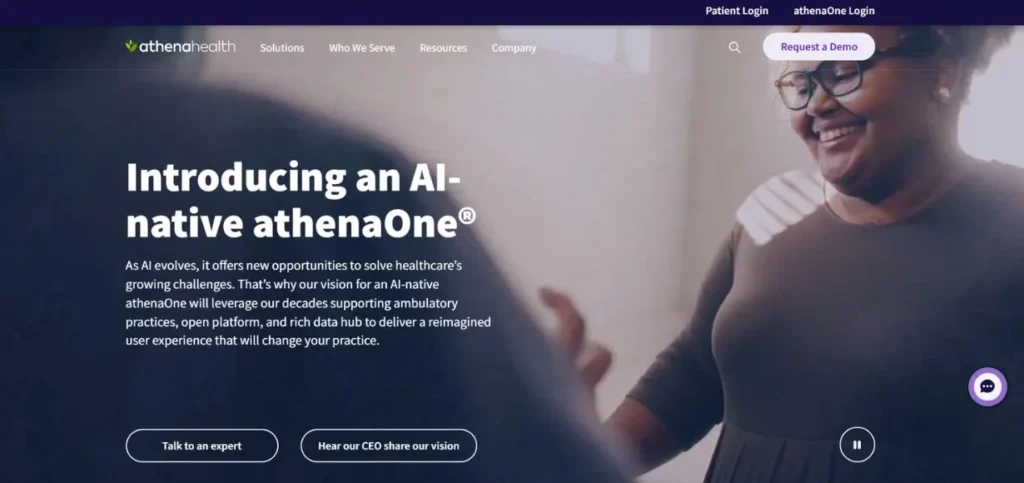
Athenahealth is one of the most successful cloud-based medical billing software solutions that help to streamline healthcare administration in practices of any size. The key features that make this comprehensive solution stand out are its robust billing automation features, vast network of payers, and practical support services designed to assist practices in collecting and expediting reimbursements to the fullest. The medical billing solutions offered by Athenahealth extend beyond software supply and extend to billing support services provided by experts, which is why they will be appealing to any practice interested in reducing its headaches about billing.
Key Features:
- Full-service revenue management
- Extensive payer network
- Real-time analytics dashboard
Pros:
- Strong automation tools
- Excellent customer support
- Intuitive user interface
Cons:
- Long configuration time
- Higher cost structure
- Complex initial implementation
Pricing: Contact for pricing
Website: https://Athenahealth.com
Also Read: Top POS Systems for Small Businesses
6. DrChrono
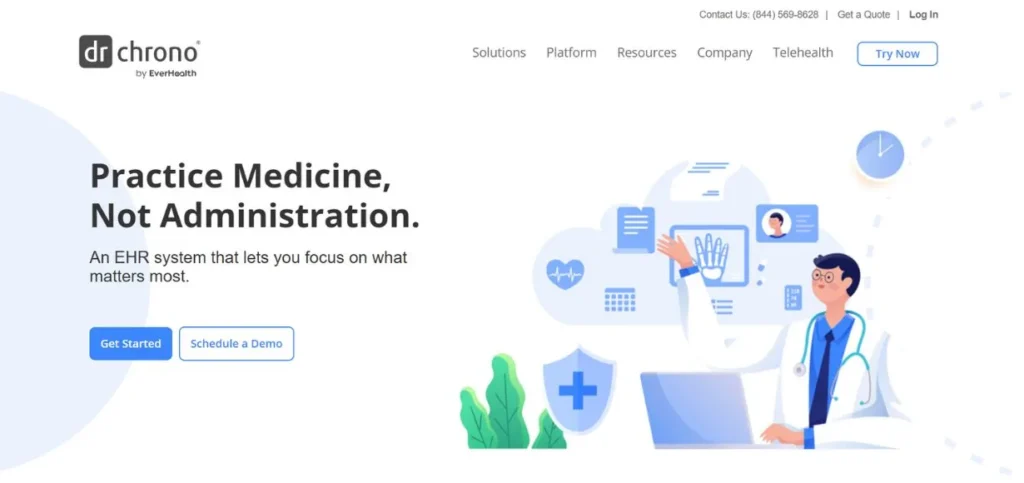
DrChrono is a mobile and custom-designed billing software platform designed to meet the needs of small to medium-sized healthcare practices with a focus on mobility and customization. The product is unique in the billing software market because it is one of the most mobile-friendly software in the market that has a very customizable experience, which operates smoothly across iPad, smartphones, and desktop computers. The mobile-first philosophy of DrChrono is especially attractive to current healthcare professionals who have to access patient records and billing data as well as schedule information on the move between exam rooms or even when working from home.
Key Features:
- Mobile-first design approach
- End-to-end billing services
- Customizable billing templates
Pros:
- Excellent mobile functionality
- Highly customizable platform
- Built-in telehealth features
Cons:
- Less polished interface
- Occasional syncing issues
- Limited advanced features
Pricing: Contact for pricing.
Website: https://DrChrono.com
7. CollaborateMD
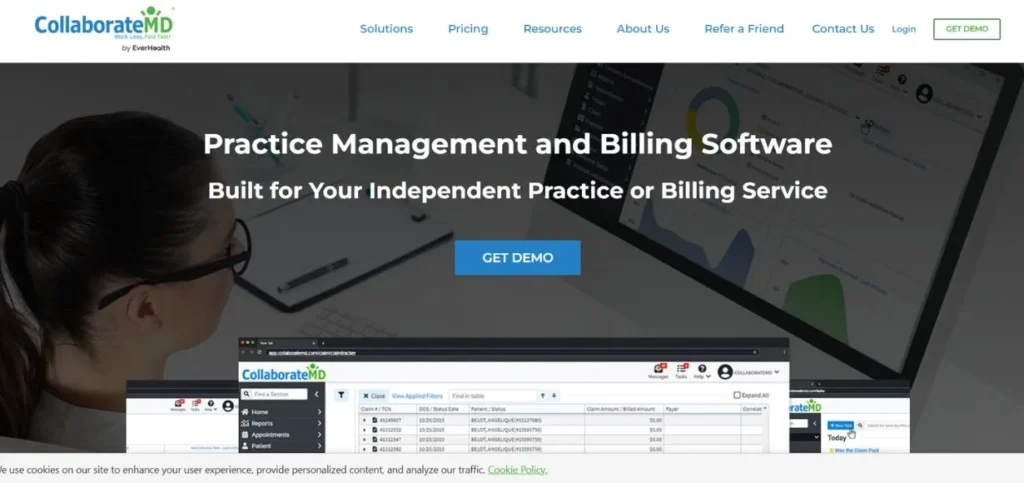
CollaborateMD is a cloud-based billing software platform that is designed based on speed and simplicity as its main design features. Smaller healthcare facilities and billing services with a focus on fast claims processing, user-friendly tools, and outstanding customer service are the most frequently visited group of users of this platform. The emphasis on faster payment practices without complicating the billing procedures, and achieved with ease, makes CollaborateMD an appealing option to practices that do not need long-term training processes to simplify the billing functions.
Key Features:
- Fast claim submission
- User-friendly interface
- EHR platform integration
Pros:
- Fast claims processing
- Easy learning curve
- Excellent customer support
Cons:
- Limited advanced features
- No built-in EHR
- Basic reporting capabilities
Pricing: Contact For Pricing
Website: https://www.collaboratemd.com/
8. CareCloud
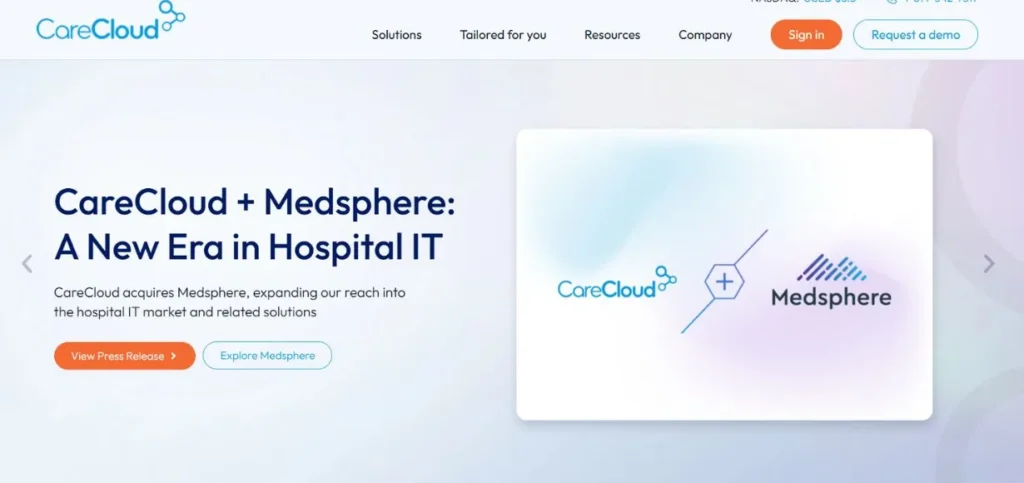
CareCloud is a new and cloud-based medical billing software platform that is characterized by a clean user interface, a heavy emphasis on patient experience, and the availability of flexible tools that will help increase efficiency without compromising the quality of personal care. This is an all-inclusive healthcare billing software solution with advanced billing features and patient interaction features, which has built an integrated solution that considers both the revenue cycle management and patient satisfaction. The denial prevention features of CareCloud proactively identify possible billing mistakes and coding problems prior to the filing of claims, assisting practices in keeping their revenue stream vibrant and their administrative workload minimal.
Key Features:
- Denial prevention tools
- Patient engagement features
- Customizable workflows available
Pros:
- Modern interface design
- Strong reporting features
- Comprehensive patient tools
Cons:
- Complex onboarding process
- Occasional system slowdowns
- Higher learning curve
Pricing: Contact for pricing
Website: https://carecloud.com/
9. RXNT
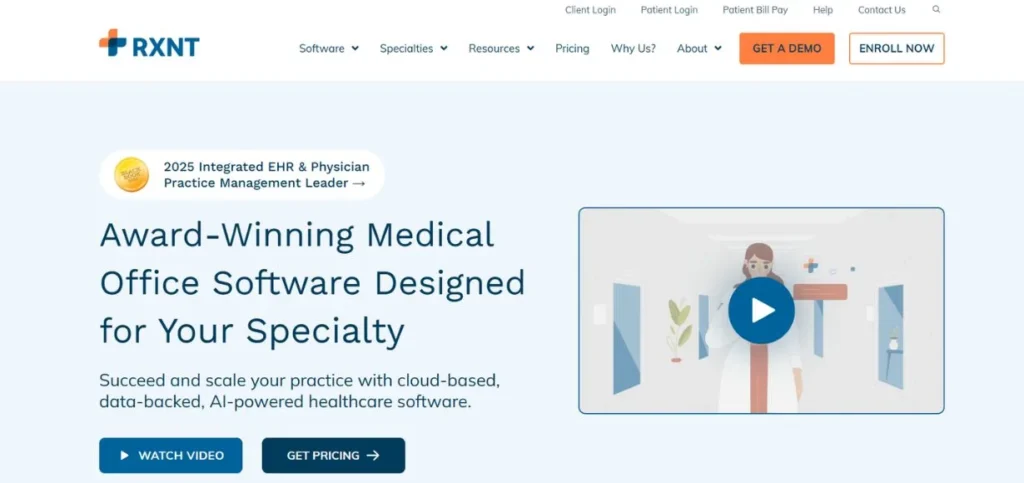
RXNT is a billing software platform supporting small- to mid-sized healthcare practices interested in a cost-effective, feature-rich platform that is fully cloud-based. This all-encompassing system includes medical billing, EHR, and practice management features in one convenient and simple solution that assists the practices to remain organized, compliant, and financially fit without overwhelming their staff. The healthcare billing software offered by RXNT focuses on ease and low cost without compromising its strength in all areas of practice management.
Key Features:
- Combined billing hub.
- Fully automated claims.
- Built-in clearinghouse integration
Pros:
- Easy setup process
- Affordable pricing structure
- Strong customer support
Cons:
- Poor sophisticated customization.
- Occasional system glitches
- Basic reporting features
Pricing: Contact For Pricing
Website: https://www.rxnt.com/
10. ModMed
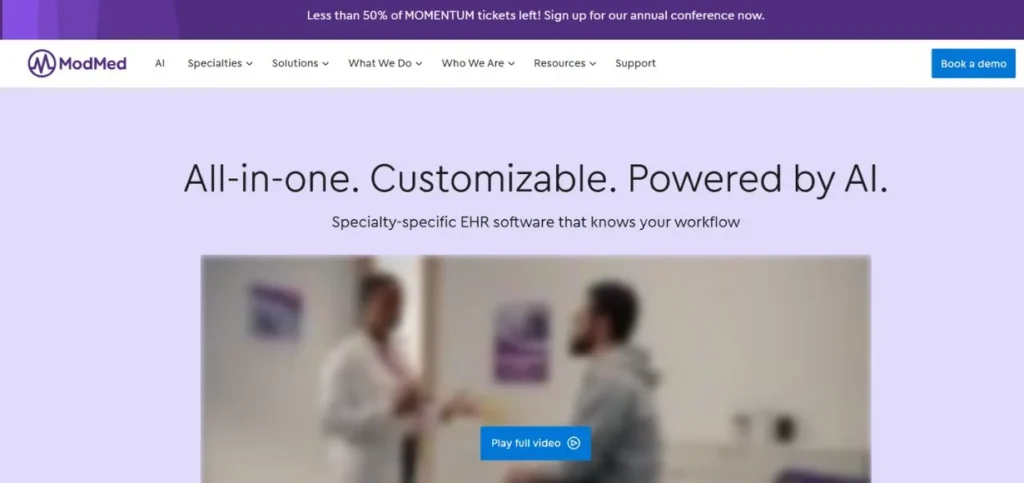
ModMed is also focused on delivering cloud-based medical billing software that is medical-specialty oriented to address the special needs in dermatology and ophthalmology, orthopedics and other medical specialties. It is an EHR-wide solution to the billing applications that are highly automated and specialty-specific workflow, modelled to suit a particular field of medicine. This is the strength of ModMed since it is not only up to date with the specialty-specific billing needs, code complexity and workflow trending, which generic medical billing systems can sometimes address in good faith, but it also responds to them very well.
Key Features:
- Specialty modules
- Combined portal.
- Revenue cycle services
Pros:
- Specialty-focused design
- Highly customizable options
- Built-in telehealth capabilities.
Cons:
- learning curve
- Limited report customization
- Specific limitations
Pricing: Contact for pricing
Website: https://www.modmed.com/
How to Choose the Right Medical Billing Software for Your Practice
- Evaluate Your Requirements: Determine your practice size, specialty, and billing volume to select the most suitable features.
- Check Key Features: Look for claim management, EHR integration, patient portal, and reporting tools.
- Ensure Compliance: Verify that the software is HIPAA-compliant and features robust data protection.
- Test Usability and Support: Select software that is user-friendly and offers satisfactory training and support.
- Compare Pricing & Scalability: Select a solution that fits your practice and is economical.
Also Read: Top Anti-Phishing Software Solutions
Common Mistakes to Avoid While Choosing Medical Billing Software
- Choosing Based on Price Alone: This can lead to unsound solutions, where a person focuses solely on the cost without considering functionality, scalability, and long-term value.
- Disregard of Integration Requirements: The failure to ensure that it is compatible with existing systems could lead to discontinuities in workflow and data silos.
- Overlooking Training Needs: The inability to estimate the resources and time required to train the staff may lead to the inability to implement it successfully and adopt it.
- Lack of consideration of Scalability: You would spend a lot of money altering your systems later on to accommodate the expansion of your practice.
- Bypassing Demo and Trial Periods: Lack of testing the software adequately before acquisition can result in discovering the constraints of implementation.
Conclusion
Speaking of the healthcare practices that are eager to simplify their revenue cycle management and increase their operational efficiency, the suitable choice of medical software is to be made. Best medical software solutions of 2025 offer a broad spectrum of functions and abilities that will serve the evolving demands of practices of various sizes and specialties. The combination of AllegianceMD and AdvancedMD, which offer full practice management packages or specialty practitioners with choices like ModMed, provides a choice to fit any healthcare organization.
One should keep in mind that the introduction of new medical billing software is your future investment in the success of your practice. Take time to weigh your options thoroughly, insist on demonstrations, and contact current users to ensure that you select the medical billing system that will optimally meet the specific needs of your practice and support you in achieving your financial and operating goals.
FAQs
Q1: How much does medical billing software cost on average?
A: The prices of medical software differ in terms of features and practice size. The cheapest solutions begin at approximately $69 per user/month, and full-fledged platforms may cost between $149 and $349 per user/month. There are numerous suppliers with specific practice pricing.
Q2: Does medical billing software work with current EHR systems?
A: Yes, the vast majority of modern medical software systems are integrated with popular EHR systems. Nevertheless, the degree of integration differs among vendors, and, therefore, it is best to ensure that the solution is compatible with your particular EHR platform before choosing.
Q3: Does medical billing software that runs in the cloud have security?
A: Recognized cloud-based medical billing software vendors have strong security controls such as encryption, access controls, and HIPAA compliance standards. Security is usually better under cloud solutions as compared to on-premises systems since they have dedicated security teams who continuously update the security.
Q4: What is the length of medical billing software implementation time?
A: The timelines of implementation differ according to the complexity of the solution and the size of the practice. Basic systems can be installed in a few weeks, whereas full systems may require 2-6 months to complete installation, together with data migration, staff training, and workflow optimization.
Q5: What are the aspects that I should consider when selecting medical billing software?
A: The important characteristics that need to be emphasized are automated claims submission, real-time eligibility check, claims denials, extensive reporting, and integration, as well as quality customer service. The exact characteristics you require will be dependent on the size of your practice, its specialty, and the needs of its operation.




